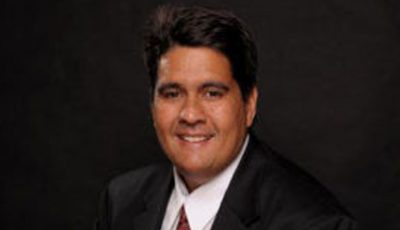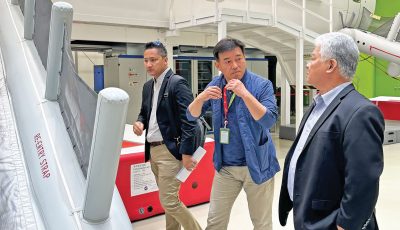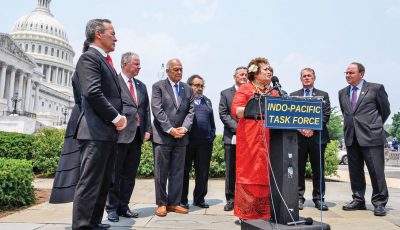Playing by the rules
My Chinese stepson returns to China shortly; a tourist who overstayed his visa, I kept him as a tolerated technical “illegal” for as long as my petition for his immigrant status was pending. When it was approved, we applied for a change of status. The rules boomed and ungroomed my little menagerie.
My petition for him and his Mom to migrate when approved meant he could not change status immediately for though I applied before he was 21, the approval occurred after, so he is to be treated accordingly, waiting his turn in line. That’s about seven years long minimum. He was not too pleased with the new rules; he gave up a job in China to come to Saipan, finding himself a new love, too. I cannot do much to change the rules. He returns to China and if he desires to move back to Saipan, application for other immigration status can be arranged.
My wife’s application for a change of status was returned lacking certain documents I though were redundant since they were already submitted in my petition, a case of non-smarts since it would have been OK had I applied simultaneously with my petition.
My wife returned to China to care for parents; her status change was deemed incomplete so the application fee was returned. I could have lost a bundle. Besides, I did not know my wife could not leave without permission once the application on the change of status was made. Ignorance of the law, I know, is no excuse.
I was at the Immigration office on an appointment recently when I discovered that I left my passport at home. My driver’s license was on the driver’s side pocket of my car that my stepson drove to take guests to the Mañagaha ferry. The guard knew who I was, and though I carried a bank-issued credit card with my photo, the rule required a government-issued identification. I was not carrying one.
I left two daughters in Honolulu summer of 1979. We came from Manila and left them with their grandparents in Honolulu. Our youngest was over 2 with a Canadian passport as she was born in Saskatoon, Saskatchewan. Her mother and elder sister both traveled with U.S. passports, and the Philippine government issued mine. We carried no document identifying how we were related. My Caucasian wife and I were traveling to Chicago and the officer just assumed that the children travelled with us. So he asked me to report to the U.S. Immigration in Chicago.
I showed up in Daley Center without our toddler. The officer hit the ceiling, eyed an “alien” traveling with a foreign passport but with a green card, and with an edge on his voice, he said, “Mr. Vergara, you obviously have a very low regard for the federal laws of this country.” I was stunned by the opening salvo but stayed quiet. It did not matter. I was remiss in fully knowing and complying with the rules.
On record, immigration official have my data readily accessible in their terminal. There was that incident in the Saskatchewan-North Dakota border where the officer point blank asked me, in front of two daughters and my wife, “if I married my wife so I could stay in the country.” Instead of getting angry, I smiled and said, “Yes.” It was not illegal but it was obviously meant to unhinge me, to offend an ordinary onion-skinned Pinoy but I saw it coming. I was not. Instead, my brassiness offended the officer.
Down in Brownsville, Texas, on a trip, I asked my colleagues if they would go across the border with me for some real Tacos in Metamoros. I was attired in a three-piece suit, but it took me six hours to return even with a green card. The officer who luckily was a church member of my denomination was candid enough to say that I fitted the profile of a “Flip” trying to slip into the U.S. through the Mexican border. The rare Filipino that shows up at the Texas border, decked out like I was, was understandably suspect.
Much earlier in ’69, I went to Pea Eye from the East Coast, returned through Seattle. Not surprisingly, my luggage was thoroughly examined for drugs; it did not help that I checked in some souvenir knives, swords, and lances along with sporting a disheveled and longish hairdo. Identified as a Methodist cleric, something did not compute, thus, the thorough examination.
Honolulu, Chicago, North Dakota, Metamoros, and Seattle are the tip of the iceberg in a long history of jostling with Immigration. I should probably feel like I was picked upon but the officers were neither discriminatory nor rude except for the North Dakota dude. I was the one who did not pay attention to the rules. The Chicago officer’s words were very pertinent: I didn’t heed the Federal laws of the country.
WASC asked NMC to have all its teaching staff’s degrees earned outside of the United States be assessed by an external third party. I applied to teach English but my ’65 BA college degree had to be assessed. It’s the rule.
For my appointment at USCIS Saipan, I did not have the requisite ID. I was refused my appointment. No complaint here. We live by rules.



























